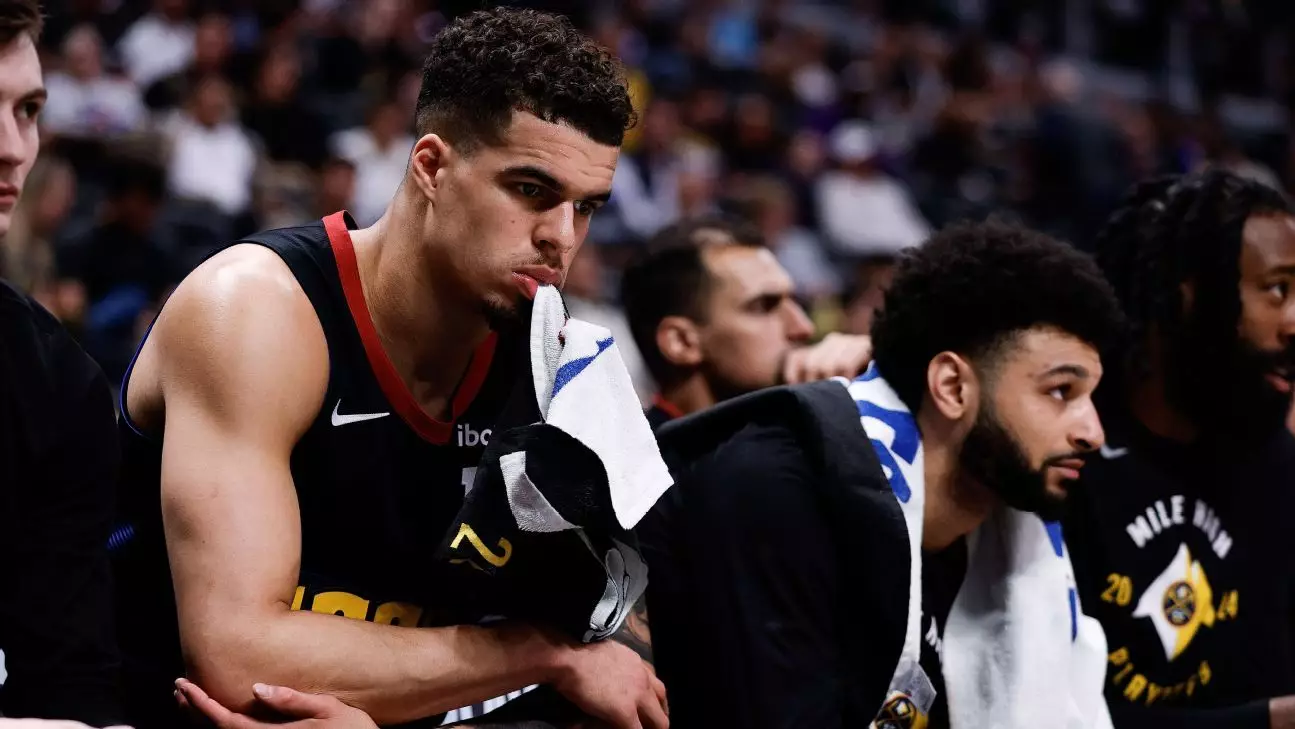In recent years, the surge of sports betting has transformed the landscape of professional athletics, often at the expense of the core values that make sports appealing: fairness, integrity, and pure enjoyment. Michael Porter Jr., a prominent NBA player, has voiced a critical perspective that resonates with many who observe how gambling’s proliferation is poisoning the very essence of competitive sports. He laments that fans are no longer engaged because of their love for the game but primarily to chase monetary gains, a mindset that corrupts the spirit of competition. As betting becomes more mainstream, especially online, the traditional sense of sport as a pure and unpredictable contest risks being diminished to merely a gambling spectacle. This shift not only threatens the authenticity of the game but also encourages a culture where winning is secondary to financial gain, often leading players down perilous paths that jeopardize their careers and personal lives.
Vulnerable Athletes and the Exploitation of Desperation
The Porters’ situation underscores the personal toll gambling takes, particularly on athletes from underserved backgrounds. Jontay Porter’s ban from the NBA in 2024—due to his involvement in manipulating game outcomes to settle debts—serves as a stark warning. His admission of removing himself from games to benefit betting syndicates reveals the dark underbelly of a system that preys on vulnerability. Michael Porter Jr. subtly points out how athletes, especially those coming from humble beginnings, are susceptible to the lure of quick money, often for themselves or their social circles. The temptation to fit in and assist friends can lead players astray, blurring the lines between personal integrity and financial desperation. This exploitation cycle feeds into a dangerous narrative: athletes are not only commodities but also targets for those seeking to manipulate outcomes for profit.
The Escalating Threats and Ethical Dilemmas
Beyond the moral erosion, Porter highlights the alarming rise in hostility and threats directed at players from bettors. The specter of death threats underscores how online gambling’s reach has fostered an environment of hostility, where players’ safety and mental well-being are at risk. The potential for violence or retaliation remains a haunting possibility in this increasingly volatile gambling ecosystem. Porter’s suggestions for restricting sports betting to physical venues in Las Vegas—away from online platforms—are grounded in the belief that tighter regulation might curb some of these negative effects. However, as betting becomes more ingrained in sports culture, this solution appears only partial. The ingrained obsession with wagering risks transforming the sporting arena into a battleground of greed and manipulation, rather than a showcase of athletic excellence.
In analyzing the entire situation, one must acknowledge that sports betting’s influence extends far beyond the sportsbook. It threatens to undermine the integrity of competitive play, exploit vulnerability among athletes, and incite hostility from a frustrated fanbase. While the allure of quick riches remains enticing, the true cost—loss of trust, safety, and the spirit of sport—is paid by everyone involved. Only through stringent regulation and a renewed focus on sport’s fundamental values can the damage be mitigated, though the road ahead remains fraught with challenges.


Leave a Reply